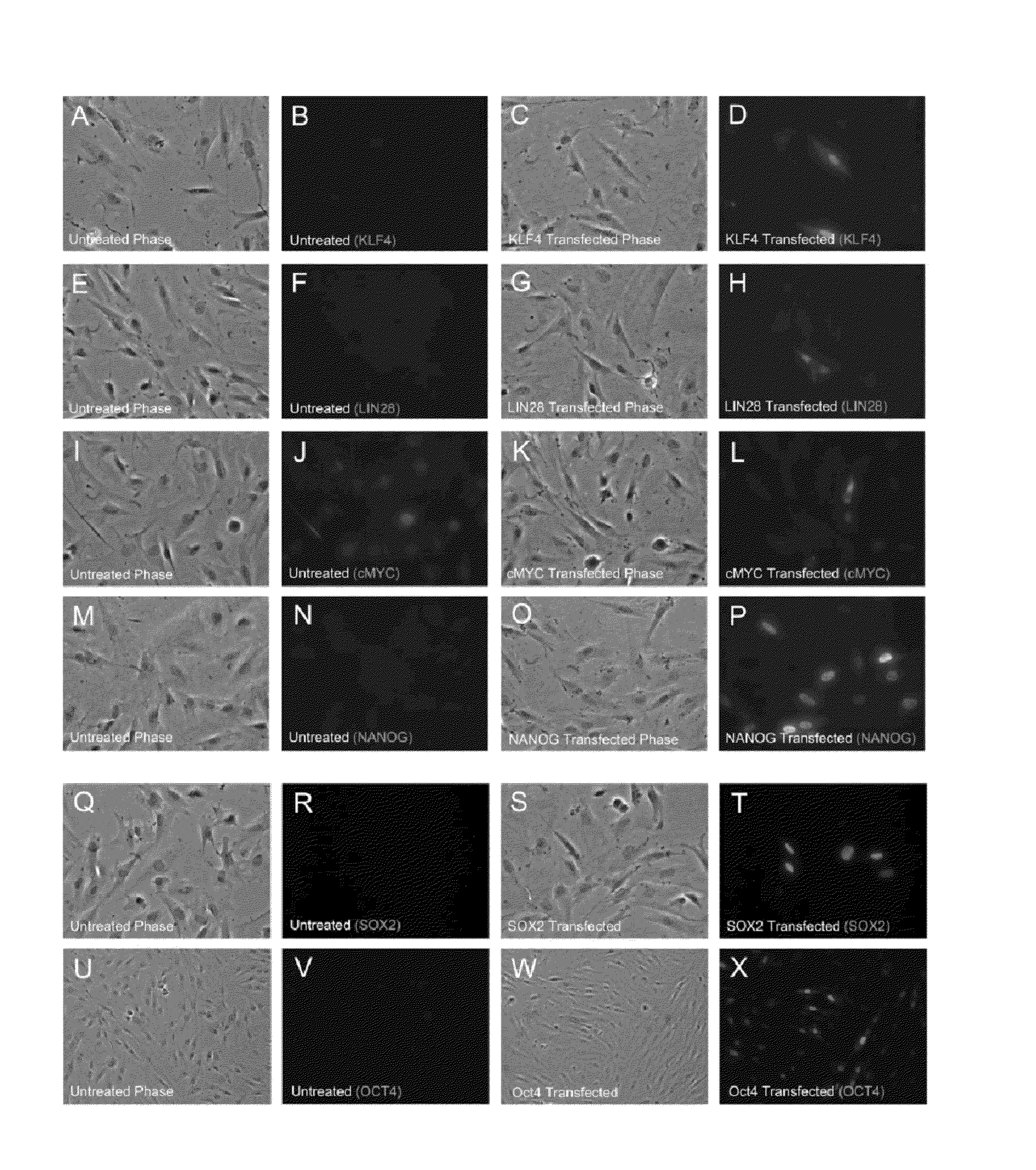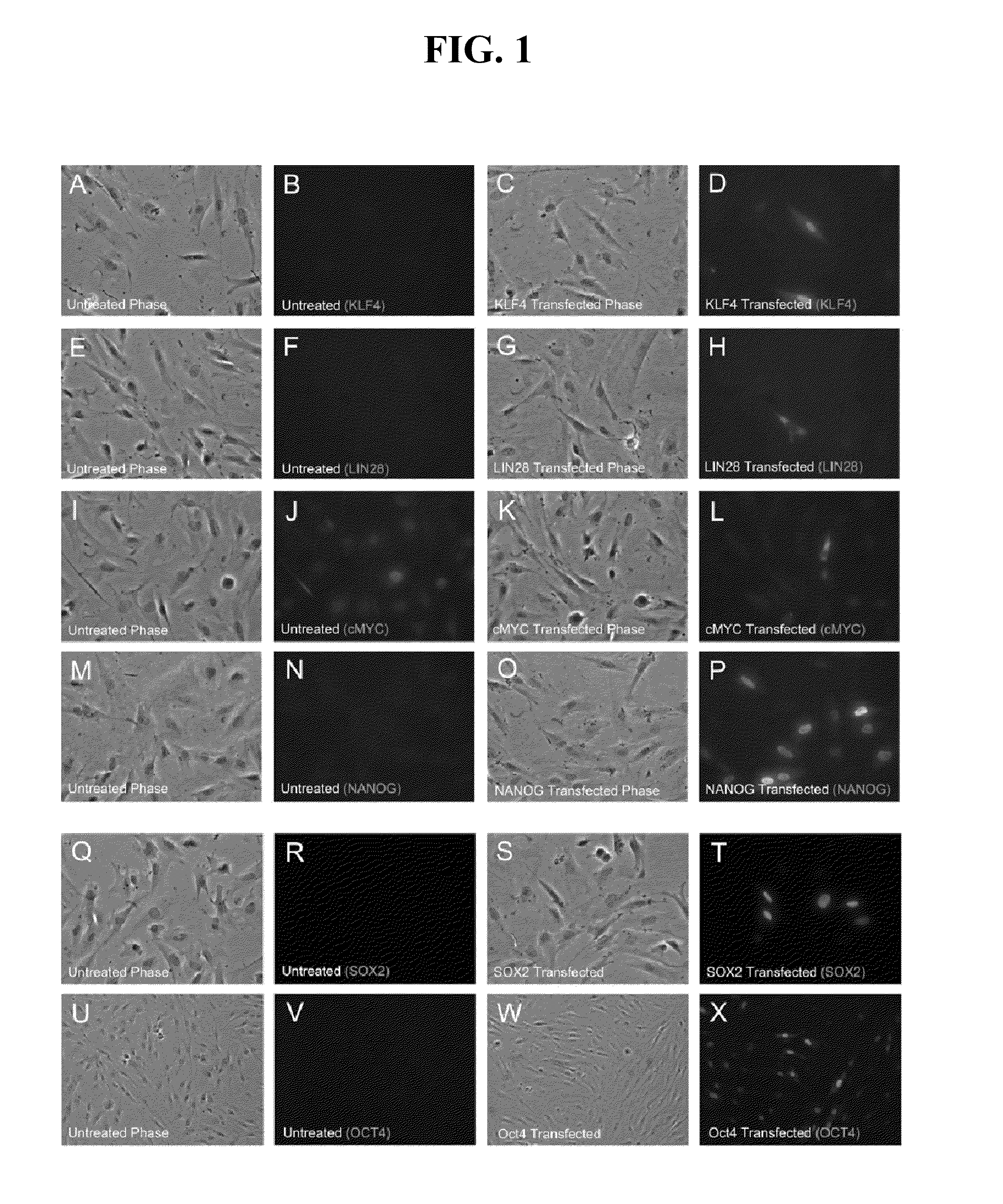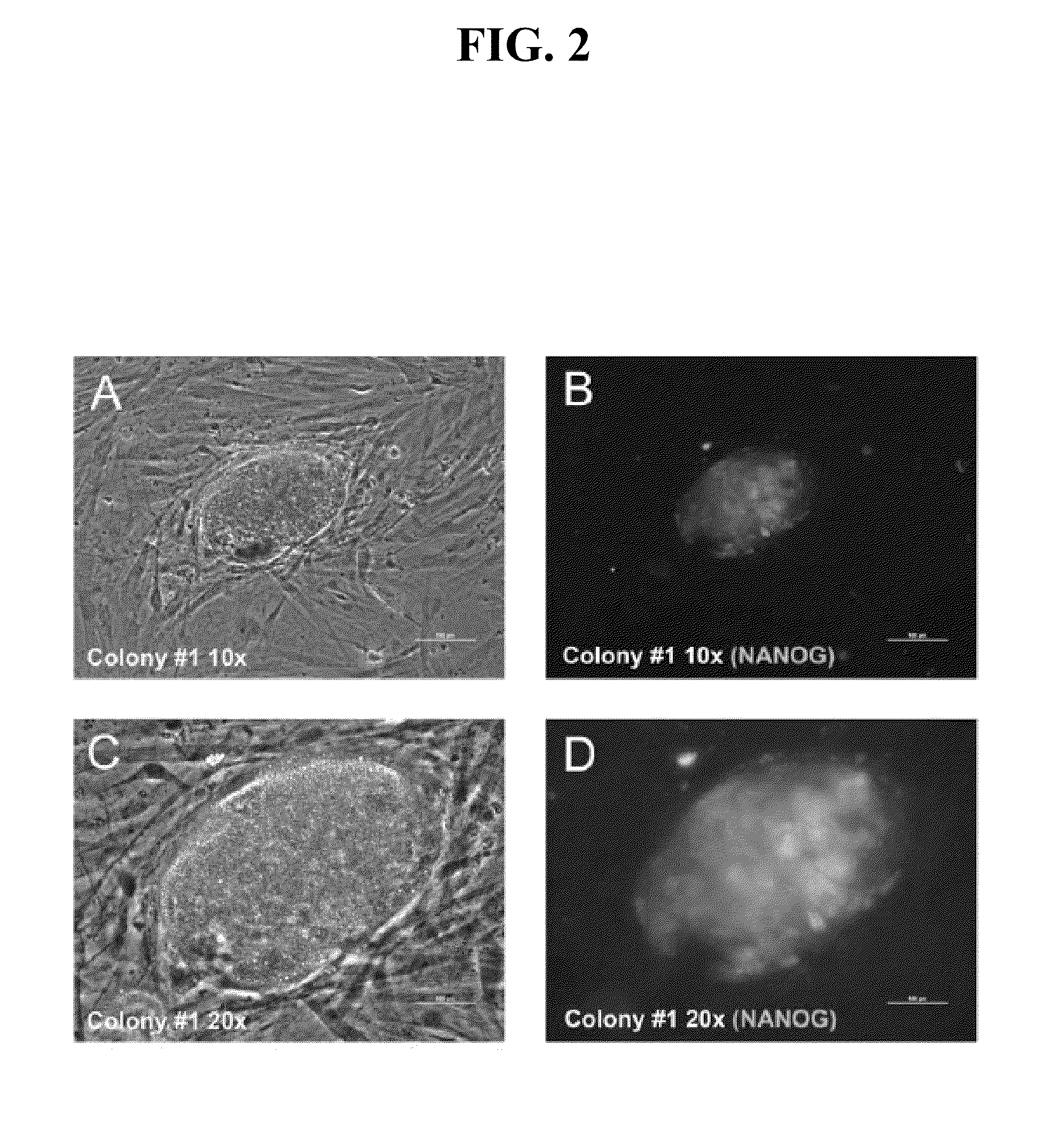RNA preparations comprising purified modified RNA for reprogramming cells
a technology of rna and reprogramming cells, which is applied in the direction of peptides, peptide sources, genetic material ingredients, etc., can solve the problems of extremely inefficient generation of ips cells using these non-viral delivery techniques to deliver reprogramming factors, and achieve the effects of reducing the incidence of restenosis, and improving the survival rate of cells
- Summary
- Abstract
- Description
- Claims
- Application Information
AI Technical Summary
Benefits of technology
Problems solved by technology
Method used
Image
Examples
example 1
[0267]This Example describes tests to determine if transfections with mRNA encoding KLF4, LIN28, c-MYC, NANOG, OCT4 and SOX2 resulted in expression and proper subcellular localization of each respective protein product in newborn fetal foreskin 1079 fibroblasts. The mRNAs used in the experiments were made with pseudouridine-5′-triphosphate substituting for uridine-5′-triphosphate (Kariko et al. 2008). The 1079 fibroblasts were transfected with 4 μg of each mRNA per well of a 6-well dish and immunofluorescence analysis was performed 24 hours post-transfection. Endogenous KLF4, LIN28, NANOG, OCT4 and SOX2 protein levels were undetectable by immunoflourescence in untransfected 1079 cells (FIG. 1: B, F, N, R, V). Endogenous levels of c-MYC were relatively high in untransfected 1079 cells (FIG. 1J). Transfections with mRNAs encoding the transcription factors, KLF4, c-MYC, NANOG, OCT4, and SOX2 all resulted in primarily nuclear localization of each protein 24 hours after mRNA transfection...
example 2
[0268]Having demonstrated efficient mRNA transfection and proper subcellular localization of the reprogramming proteins, this Example describes development of a protocol for iPS cell generation from somatic fibroblasts. Equal amounts (by weight) of KLF4, LIN28, c-MYC, NANOG, OCT4, and SOX2 mRNAs were transfected into 1079 fibroblasts three times (once every other day). The day after the third transfection, the cells were plated onto irradiated MEF feeder cells and grown in iPS cell medium. Six days after plating the 1079 fibroblasts onto irradiated MEFs, two putative iPS cell colonies became apparent on the 10-cm plate transfected with 3 μg of each reprogramming factor mRNA (KLF4, LIN28, c-MYC, NANOG, OCT4, and SOX2). The colonies were allowed to grow until 12 days after the last transfection before they were fixed for immunofluorescence analysis. The inner cell mass-specific marker NANOG is often used to assay whether iPS cell colonies are truly iPS colonies (Gonzalez et al. 2009, ...
example 3
[0270]This Example describes attempts to improve the efficiency of reprogramming differentiated cells using mRNA. In one approach, a protocol was used that comprised transfecting 1079 or IMR90 fibroblasts three times (once every other day) with the mRNAs encoding the six reprogramming factors in MEF-conditioned medium rather than in fibroblast medium and then growing the treated 1079 fibroblasts in MEF-conditioned medium rather than plating them on a MEF feeder layer after the treatments. At the highest transfection dose utilized (36 μg of each reprogramming factor per 10-cm dish), 208 iPS cell colonies were detected three days after the final transfection (Figure A-F). Interestingly no iPS cell colonies were detected in the dishes transfected with either 6 or 18 μg of each of the reprogramming factors at the 3-day timepoint, suggesting that a dose above 18 μg was important, under these conditions, for iPS cell colony formation to occur within 3 days in MEF-conditioned medium. IMR90...
PUM
| Property | Measurement | Unit |
|---|---|---|
| time | aaaaa | aaaaa |
| volume | aaaaa | aaaaa |
| pH | aaaaa | aaaaa |
Abstract
Description
Claims
Application Information
 Login to View More
Login to View More - R&D
- Intellectual Property
- Life Sciences
- Materials
- Tech Scout
- Unparalleled Data Quality
- Higher Quality Content
- 60% Fewer Hallucinations
Browse by: Latest US Patents, China's latest patents, Technical Efficacy Thesaurus, Application Domain, Technology Topic, Popular Technical Reports.
© 2025 PatSnap. All rights reserved.Legal|Privacy policy|Modern Slavery Act Transparency Statement|Sitemap|About US| Contact US: help@patsnap.com



